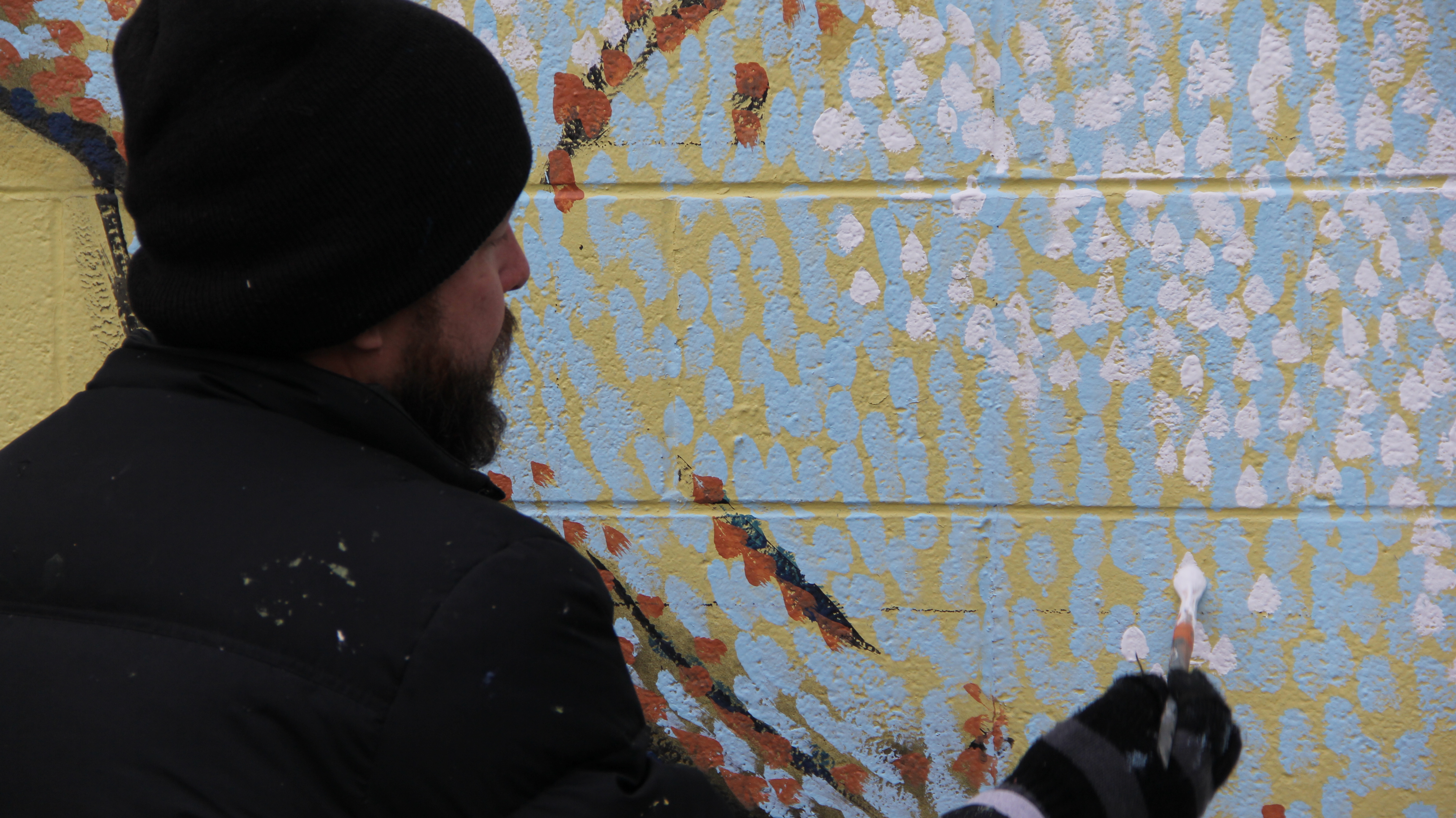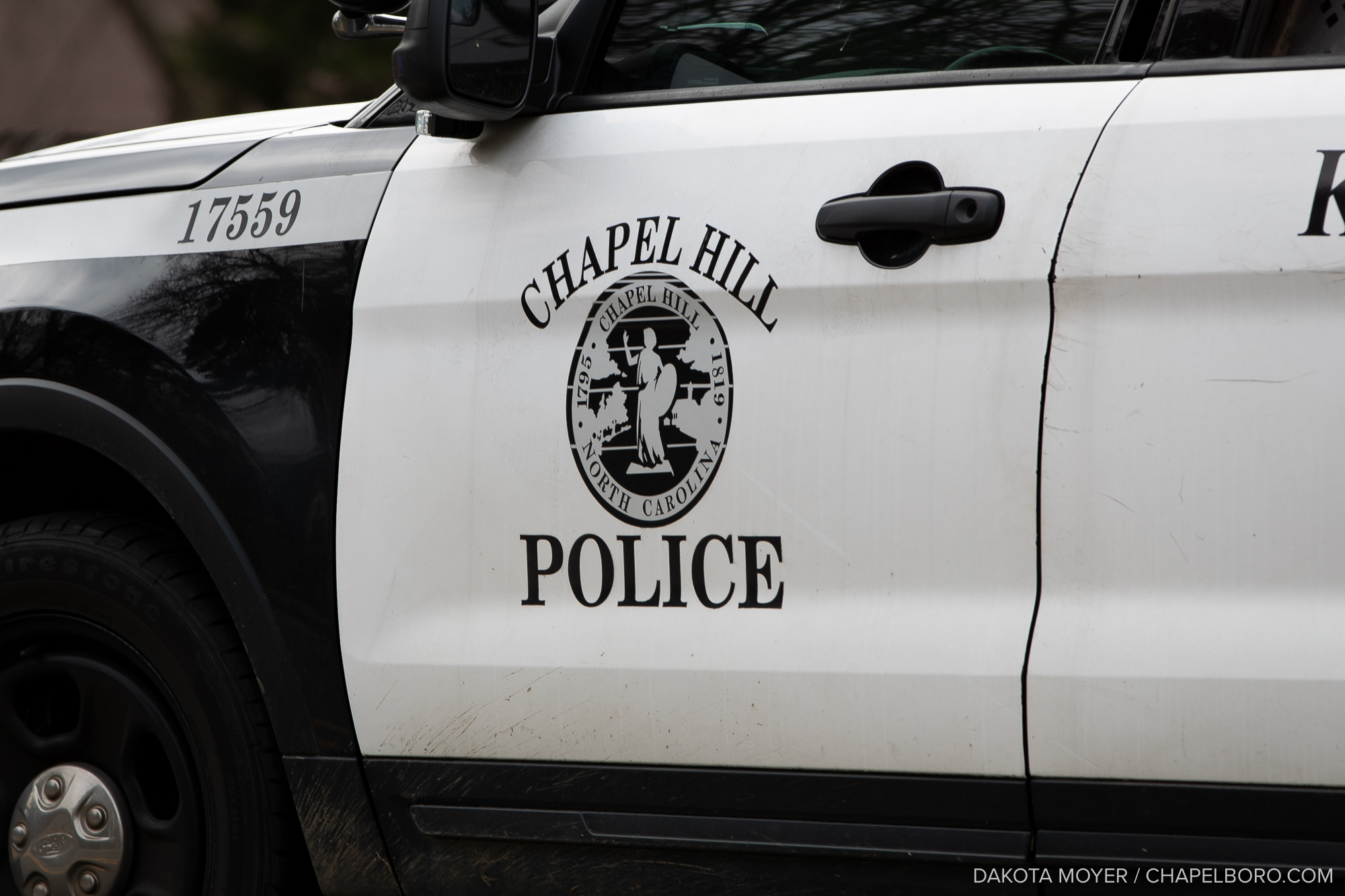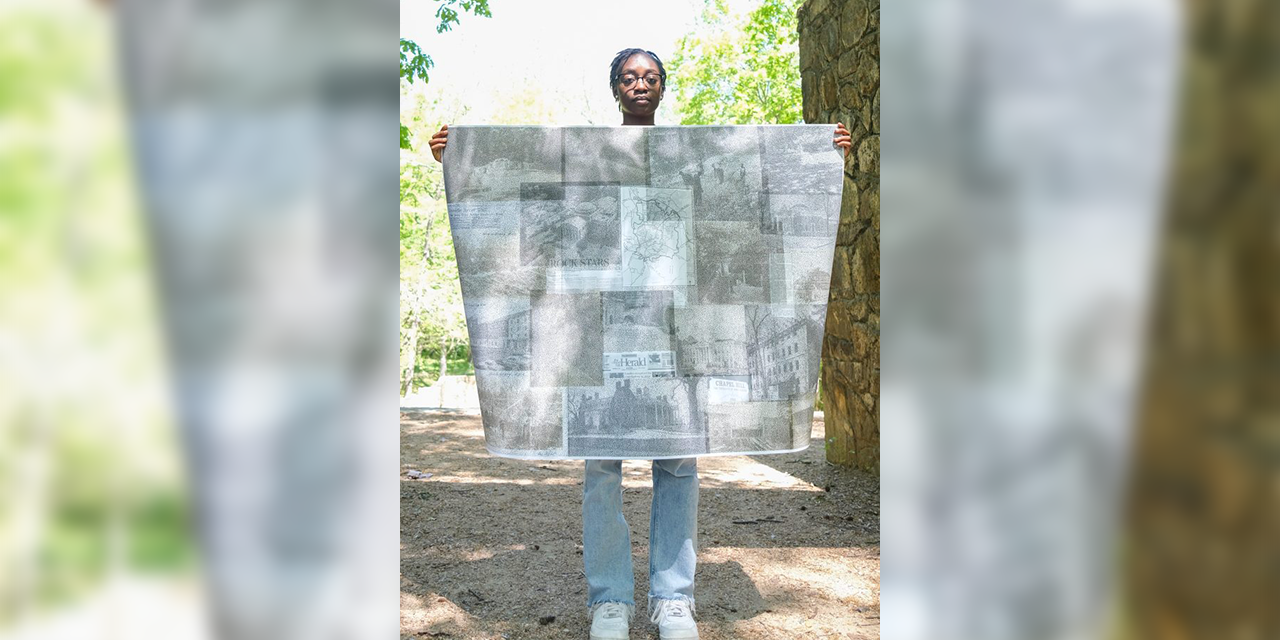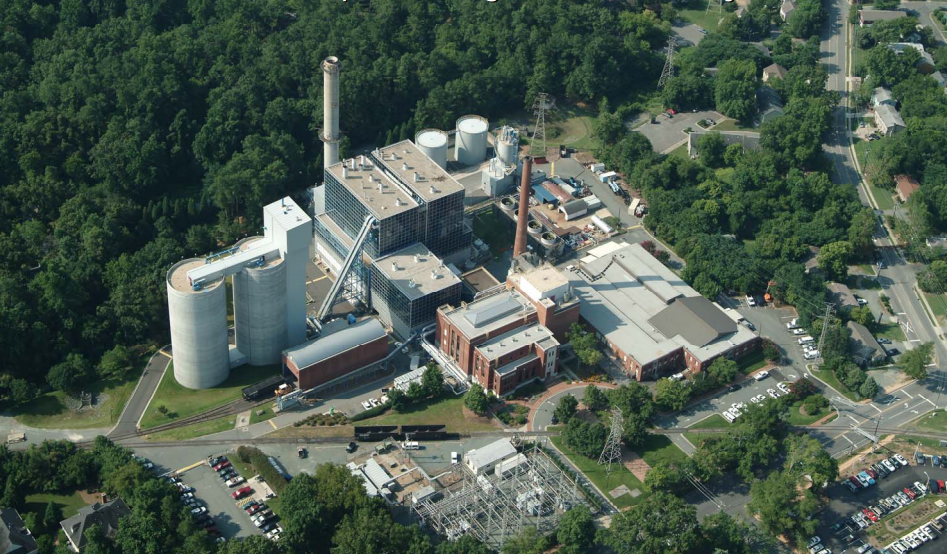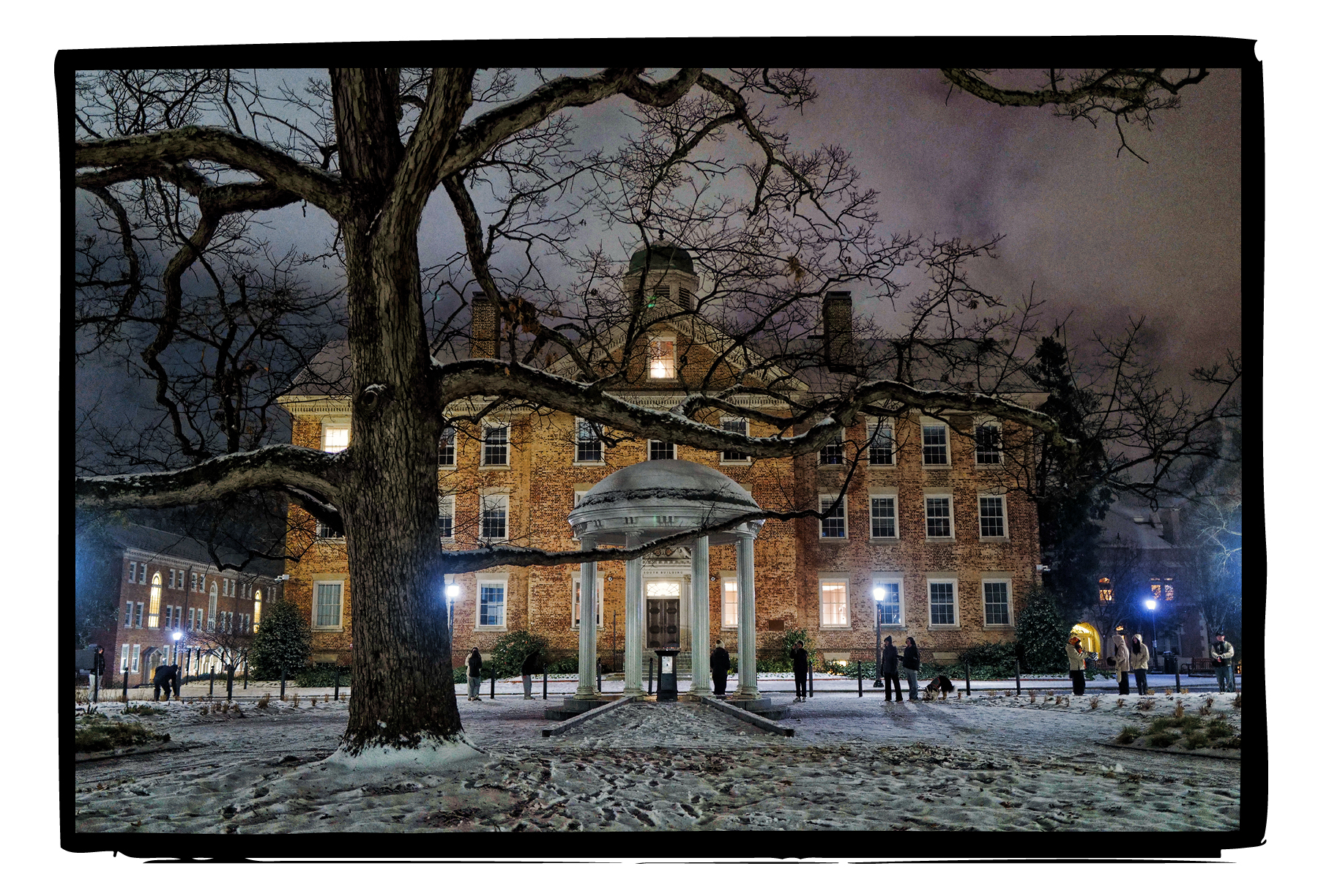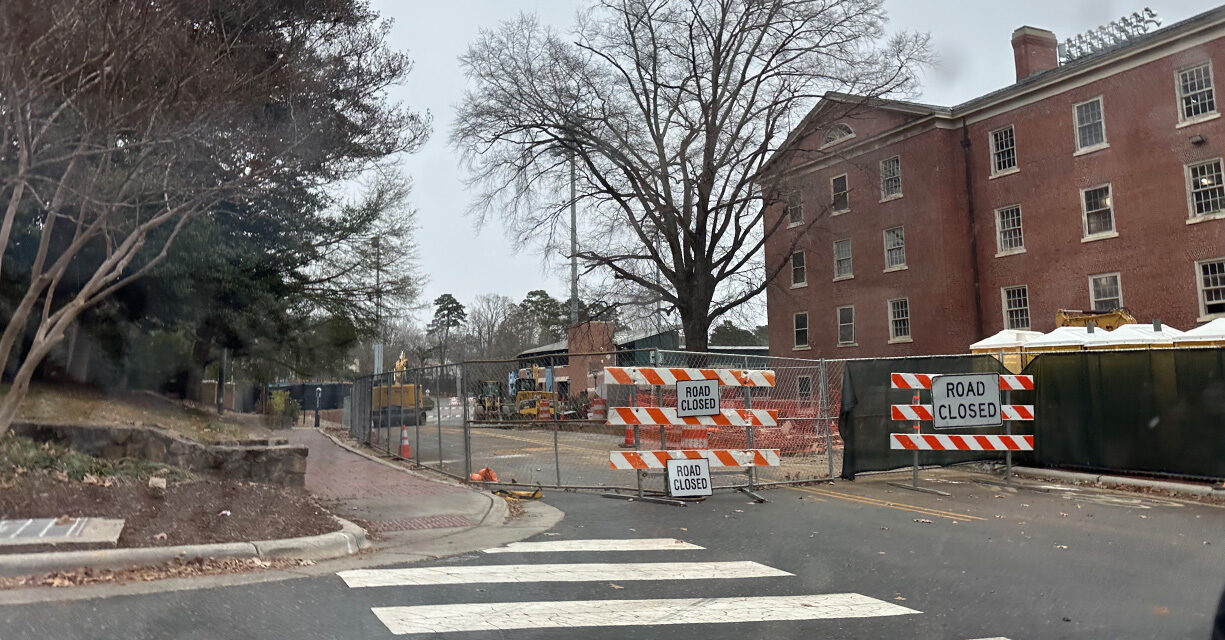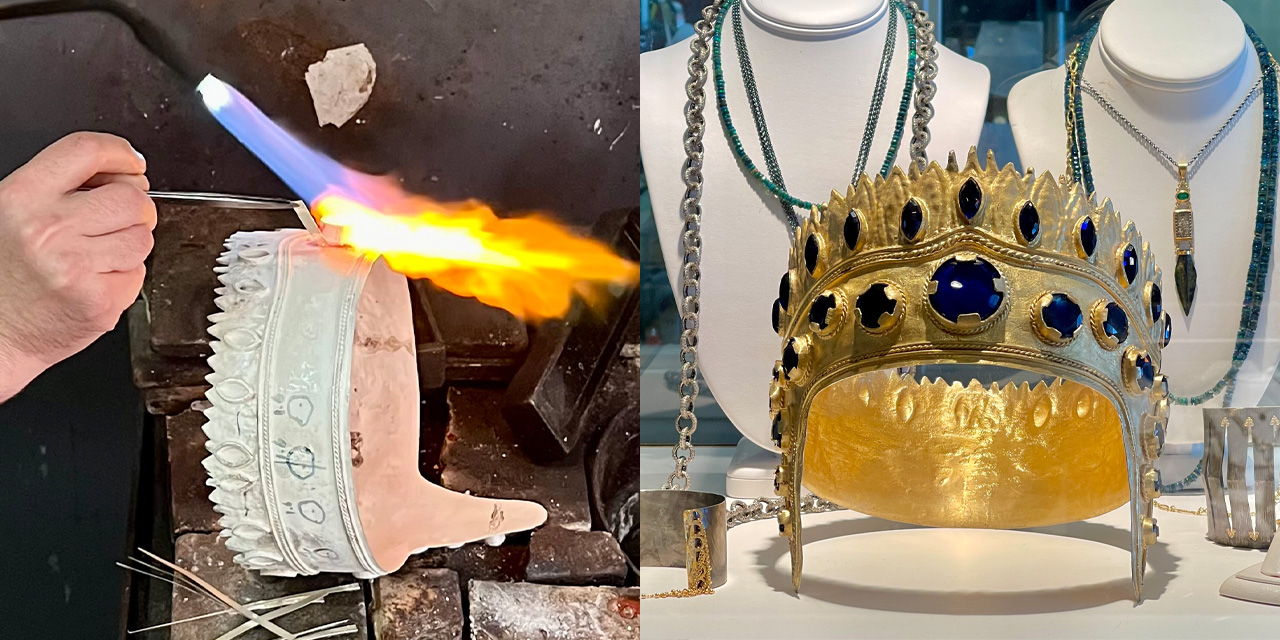Under a perfectly Carolina blue sky on Sunday, the UNC Gospel Choir sang to a crowd of citizens, community leaders and local elected officials gathered at Peace and Justice Plaza where two new names were being added to the granite stone that celebrates local leaders for their work on social justice issues.
Mayor Mark Kleinschmidt alluded to some of the history of the location.
“With community support, we believed it was appropriate to honor some significant members of our community members in this space,” he says. “Members who have participated in the demonstrations and the speak outs, who have provided the energy, the intellect and the enthusiasm to support the great words and the fights that were brought to the ground right here.”
Those two names added were Town Council member Bill Thorpe and legendary UNC basketball coach Dean Smith.
Smith will long be remembered by college basketball fans for the work he did leading the Tar Heel program for three decades, winning two national championships and cultivating Carolina basketball into one of the most recognizable brands in the world.
But many who knew Smith on a more personal level remember him as someone dedicated to several social justice issues, one of which was integration.
William Thorpe, Bill Thorpe’s son, recalls some of the behind-the-scenes work orchestrated by Smith when recruiting Charlie Scott, who was the first African-American to attend North Carolina on an athletic scholarship. Thorpe says Smith asked Bobby Gersten if his son would be able to room with Scott because Gersten, who is Jewish, had seen some of the same marginalization in the past.
“This is the sensitivity of Dean Smith,” he says. “And, not only Charlie, could you have maybe Eddie Fogler and Jim Delany, could they kind of help ease the transition for Charlie and help him to adjust socially?”
The 95-year-old Gersten, UNC’s oldest living athlete, also spoke at the celebration. He says he remembers hearing from his son, who did end up rooming with Scott.
“I called my son Richard and said, ‘Richie, you know Charlie is in a unique situation, very difficult, and he’s going to need your help socially,’” Gersten recalls. “And Richie said to me, ‘Daddy, do me a favor, worry about me not him. He’s had a date every night, and I haven’t talked to a girl yet.’
“Charlie’s social life was tremendous from then on and everybody was crazy about him.”
Recruiting Charlie Scott was just one of the few examples of Smith’s mindset on social issues. Scott Smith, Dean’s Son, says Dean’s reach spilled over into local politics.
“I think he was also very proud that he helped Howard Lee get elected Mayor of Chapel Hill,” Smith says. “Those are the things that are important to him.”
Lee was the first African-American Mayor of Chapel Hill.
Bill Thorpe ran for Chapel Hill Town Council eight times, for the first time in 1975. He was elected to his first term in 1977. During his second term, Thorpe was a strong voice behind the movement for Chapel Hill to observe Martin Luther King Junior Day before it became a federal holiday.
Thorpe was also very influential in the renaming of Airport Boulevard to Martin Luther King Junior Boulevard, as well as the establishment of a paid internship program with the Town of Chapel Hill for UNC students.
Durham representative Larry Hall is the Democratic leader in the North Carolina House of Representatives. Hall and Thorpe were two members of what they called “The Breakfast Club,” which met up to discuss issues in local government. Hall calls Thorpe the architect of his career.
“[Thorpe] really believed that if you had a position, if you were elected, that you were there for a reason,” Hall says, “not to sit quietly, not to be an observer, but to be a very active participant and represent those principles that you were known for, that you campaigned on, that you assured people of.”
Bill Thorpe and Dean Smith. Two of the now 13 names forever inscribed and remembered for their work on social justice issues.

